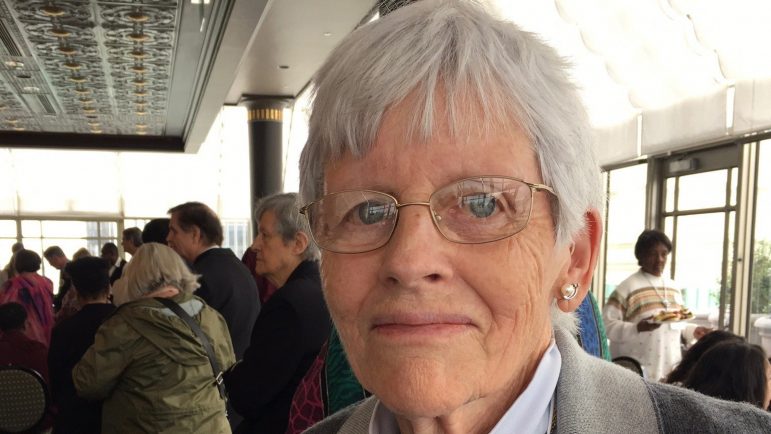In Alabama, nearly 1 in 5 people on death row were sentenced to death through judicial override, according to the Equal Justice Initiative. Judicial override allows judges to impose the death penalty after a jury returns a life verdict, and Alabama is the last state to allow it. Critics have called override unreliable and arbitrary. Now there’s a bipartisan effort in the legislature that could abolish the procedure.
State Rep. Chris England stood outside the State House earlier this week and told a crowd why Alabama should end judicial override. England is sponsoring the House bill that would do just that. And he says Alabama’s distinction as the only state to let judges overrule juries could motivate change.
“My mom used to tell me sometimes, being embarrassed sometimes could make you do the right thing,” England said. “But we’re at this threshold today and I’m hopeful that we’re actually going to do the right thing.”
The House could vote on the measure today. Per capita, Alabama sends more people to death row than any other state.
“Alabama is in love with the death penalty,” says Esther Brown, executive director of Project HOPE, a group that works to abolish the death penalty in Alabama. Brown says this latest legislation is a step that’s long overdue. Part of the problem, she says, is that there’s pressure on judges to dole out harsh sentences.
“They feel that voting for law and order, and we would all like law and order, that means punish them really hard,” Brown says.
One big criticism of override stems from the fact that judges in Alabama are elected. And during election years, the rate of overrides goes up. Sen. Dick Brewbaker, who sponsored a similar judicial override bill this session, says the numbers speak for themselves.
“All the research shows that over half of overrides take place in election years,” Brewbaker says. His bill passed 30-1 in the Senate last week.
In Florida, one of the last holdouts of judicial override, lawmakers ended the practice after the U.S. Supreme Court last year ruled that Florida’s sentencing scheme – which is the same as Alabama’s — was unconstitutional. Kimble Forrister, is state coordinator of Alabama Arise, a citizen’s advocacy group. He says the move to end judicial override here could be a way to preempt similar legal challenges. But the real question, he says, is ‘does Alabama trust its juries?’ Right now, the answer is no.
“It’s kind of outrageous that Alabama doesn’t trust a jury of your peers to make the right decision,” Forrister says.
But if the House approves this measure, Alabama juries considering the death sentence will have the final say.

